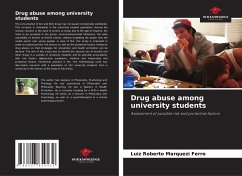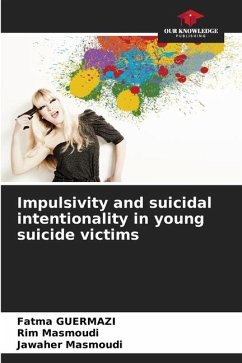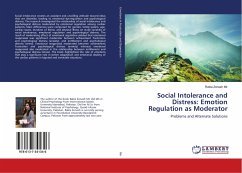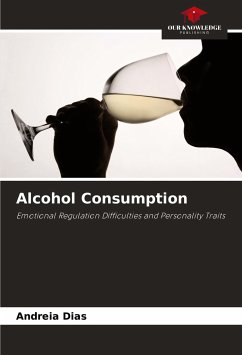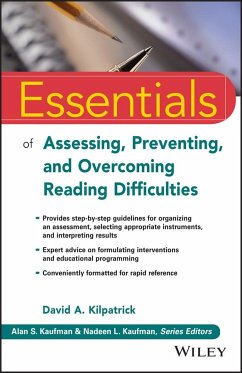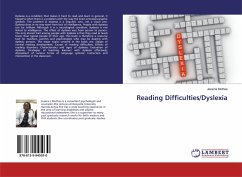
Emotional regulation difficulties in students
Emotional regulation difficulties: links with impulsivity and sleep quality in medical students
Versandkostenfrei!
Versandfertig in 6-10 Tagen
29,99 €
inkl. MwSt.

PAYBACK Punkte
15 °P sammeln!
The concept of impulsivity refers to a variety of behaviors that are performed prematurely, excessively risky and inappropriate. It is therefore important to be able to assess it and to specify its impact on sleep quality and emotion regulation. The objectives of our work were to assess impulsivity in medical students and to study its relationship with emotion regulation, sleep quality and sociodemographic data. Methods: This was a descriptive and analytical cross-sectional study of 100 students in the Faculty of Medicine of Sfax. The assessment of impulsivity showed that our medical students ...
The concept of impulsivity refers to a variety of behaviors that are performed prematurely, excessively risky and inappropriate. It is therefore important to be able to assess it and to specify its impact on sleep quality and emotion regulation. The objectives of our work were to assess impulsivity in medical students and to study its relationship with emotion regulation, sleep quality and sociodemographic data. Methods: This was a descriptive and analytical cross-sectional study of 100 students in the Faculty of Medicine of Sfax. The assessment of impulsivity showed that our medical students adopted impulsive behaviors and attitudes. Their mean total score was 66.78 ± 9.44. Of the participants, 25% had a high degree of impulsivity (score > 72). Students with high impulsive potential had more difficulty identifying their emotions, accepting them, becoming aware of them, and managing them. Poor sleep quality was observed in 40% of our students. The increase in impulsivity was associated with male gender (p=0.002).






